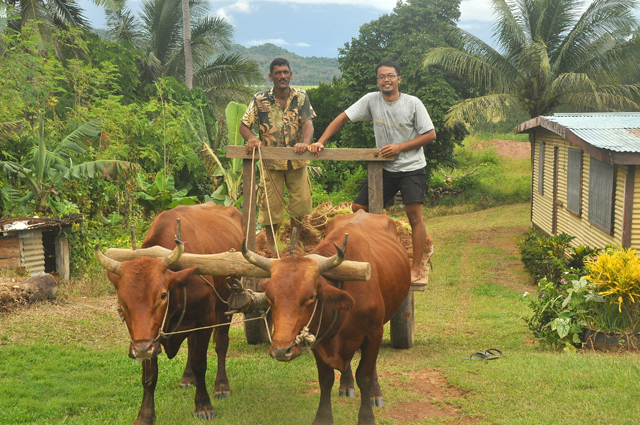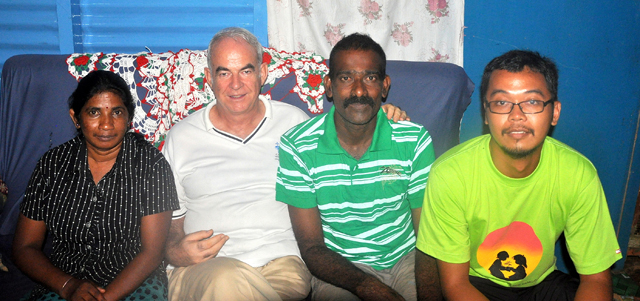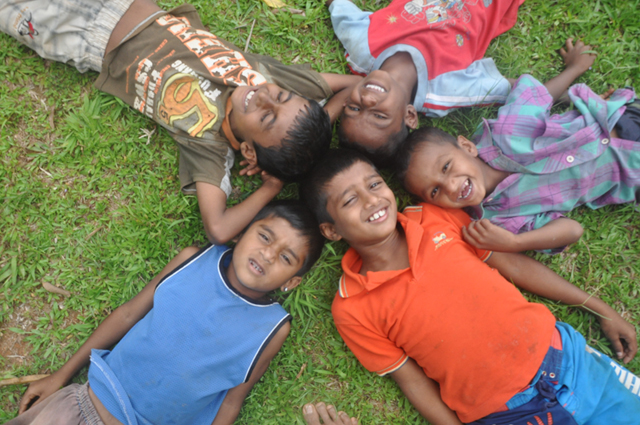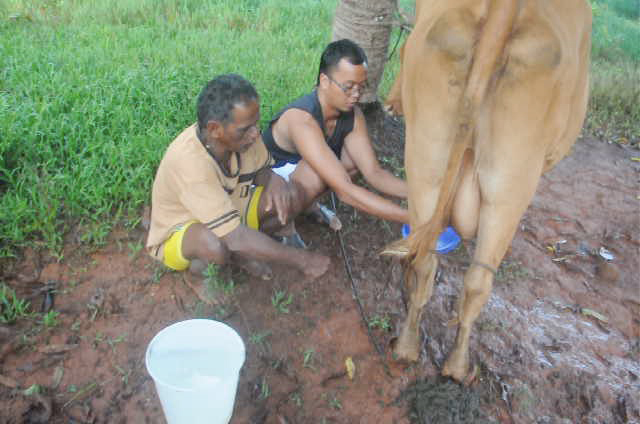Living in an Indo-Fijian Village
By Kurt Zion V. Pala
Fiji is a multicultural country. The Indians who arrived in the country were brought by the British about 100 years ago to work in the sugarcane plantations across the country. Now they have settled in the country and are considered Fijians. They still have their distinct Indian culture and traditions but have well established themselves in Fiji. I have from the beginning been assigned to live and work with them and so learned their language and lived in the village with one Indo-Fijian family for a period of five months.

Riding on the tamtam with Nana (‘Lolo’) Barabhabu
It was already about five in the afternoon but I had told my host father that I would be home by around one so I told them I have to leave because it was getting dark. I often get scolded for coming home late. But I always have my good reasons. ‘Khub ghar ghar ghume?’ my host mother exclaimed. She told me that I’d been roaming around the village the whole day. So I just put on my best smile and greeted them. I lived with an Indo-Fijian family, Uncle Bhola and Auntie Mary, for almost five months.
Right after my Hindi class with Master Gyan, I would walk back home from the Mission House. I had to climb a hill and on the way passed by about 10 houses. On any given day people would call out for me to have some tea or yangona or on some special days even get free lunch of goat curry, rice and dhal. This is what I enjoyed most when I was living in Paharkhaala, up in Naleba in Labasa, not just the food but also the people.

Together with Fr. Frank Hoare, Auntie Mary and Uncle Bhola
‘Aja, aji , salaam walaikum!’ I greeted the Muslim couple that I never miss seeing on my way home. Aji never fails to greet me when she sees me and says everytime, ‘Go my child and take care’. She’s fond of children. That includes me because none of her children are with them anymore.
From the top of the hill, I could see the girls waiting for me. I sometimes help them out with their homework. ‘Namaskaram brother!’ I heard them greeting. Auntie asked me to have lunch first. Sitting on the veranda I saw old man Barabhabu riding on something driven by two big bullocks. I knew what it was so I exclaimed, ‘Nana, aapke tonton? ‘Is this your tonton?’ Nana just laughed and told me that it is called tamtam, not tonton. After revising their homework I told them I had to go.
Just a few steps further on is Almilu attha’s place. I saw her sitting under the tree and so I called out, ‘Attha, kaise hai?’ Almilu attha is my host father’s older sister. Before I could say no, she had already set a cup of tea and pudding cake before me. I told her I would be celebrating my birthday with the children the following Sunday. I finished my tea and left.

All smiles after some games and sweets, children of Paharkhaala
I decided to see the parents of the children and asked them if the children could come to my small birthday party. All the children came in their best dress. I was surprised to see Guddhi and Dennis wearing shirts at all, as they usually run around half-naked. The children enjoyed the games and sweets but I guess I enjoyed the day the most.
I try to visit all the families in the village not just the Catholics. Boss nana, a devout Hindu, invited me to his place. I learned that he owns two milking cows and so I asked him if I could come and learn to milk the cow. Early next day, I went back to his place and saw him tying the two hind legs of the cow. He showed me how to do it and I just started milking the cow. I went home happy with two bottles of fresh milk.

With Boss nana, milking the cow
If you ask me how I spend my day, I would say, ‘Ghar ghar ghume!’ and that is how I am learning more about the language, culture, and every aspect of life in an Indo-Fijian village. I have grown to love the people and from being a stranger have become ‘family’ because they started to call me beta (son), natin (grandson), bhaeni (nephew), and bara anna (big brother). And I will never forget one little girl who calls me Brother-Mama (Brother-Uncle) . Thank you Naleba! I hope I have brought you as much joy into your life as you have brought into mine.
May we become missionaries of joy to every person we meet – regardless of their faith or color.
